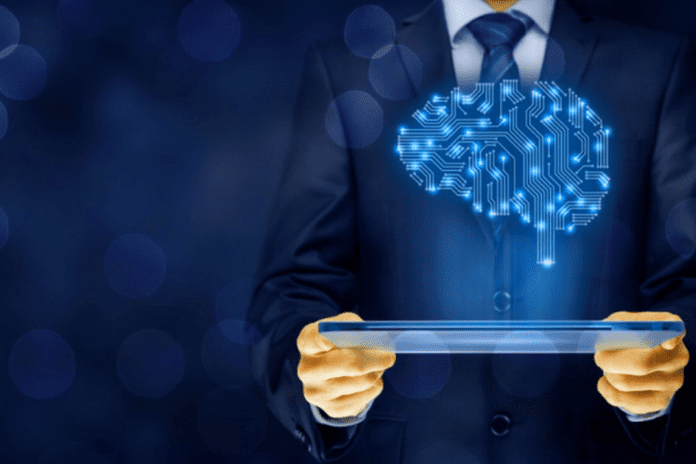Optimizing processes and generating insights for assertive decision-making are common goals of companies undergoing digital transformation. In addition, these businesses aim to offer customers an excellent experience to retain the public and increase profitability. A technological resource that has already been adopted in organizations around the world for bringing these and other differentials is artificial intelligence (AI).
If you’ve come this far, it’s probably because you want to know more about the application of this disruptive solution in companies, its benefits, and the most suitable tools. In this case, you’ve come to the right place. Follow our post because that’s what we’re going to talk about!
What Is Artificial Intelligence?
Despite being a term increasingly used in the corporate world, it is common for there to be doubts about what artificial intelligence is. It is an area of computer science responsible for creating resources capable of simulating the human capacity to reason, perceive, make decisions and solve problems. In this case, these machines’ actions are based on patterns from massive databases with specific purposes.
Practical Applications Of Artificial Intelligence In Organizations
Currently, AI is everywhere and in all market sectors, which use the resource according to the characteristics of the business and the objectives to be achieved. For clarity, check out some practical applications below:
Artificial Intelligence In The Retailer
Retail is one of the segments most covered by artificial intelligence, as all processes become leaner and more efficient, both in the physical POS and virtual store. Through data analysis, machines and systems can make decisions without human intervention, which frees up more time for teams and increases productivity.
Logistics, for example, is one of the areas that benefited. With AI, it is possible to reduce storage costs and predict product quantity, shipments, better routes, and delivery time.
Other advantages of using artificial intelligence in retail are:
- Improved service, thanks to chatbots that make responses and problem solving more agile and satisfying;
- Recommendation and customization of products in e-commerces and also through devices installed at physical points of sale;
- Assessment of consumer behavior using machine learning can detect the most different movements of the face and recognize patterns in the purchase history, among other factors.
Information Security
Artificial intelligence can help businesses protect their data and applications against unauthorized access when the home office becomes increasingly common. Solutions such as iris reading and decoding make it possible to ensure that only authorized people access systems and applications.
In addition, solutions are already being used for cyber defense, identifying risks and vulnerabilities through constant scans. This promotes more security to data, which is increasingly valuable to the business.
Human Resources
Selection of suitable candidates is one of the most complex tasks for a company. This is because a detailed study of profiles and characteristics is necessary that will lead to the most appropriate choices.
With artificial intelligence solutions, this task becomes more accessible. This is because the systems can analyze thousands of CVs in a few minutes, pre-selecting the professionals most apt to occupy certain positions, reducing costs, and improving the results of the processes.
Understanding Of Behaviors
As mentioned, one of the main applications of artificial intelligence is understanding behaviors. By fully segmenting a brand’s audience according to their preferences, the marketing sector, for example, can create increasingly personalized campaigns, exploring the data and, almost individually, generating a much better return on investment. In turn, the sales area receives leads that have already passed through the entire sales funnel and are ready to purchase.
Generation Of Insights
Companies must have solutions that bring the insights needed for daily decisions quickly and efficiently to stand out in the face of high competition and win over customers. This is precisely one of the main benefits of artificial intelligence.
Benefits Of Adopting AI
From what we’ve shown so far, you could get an idea of what artificial intelligence can do for your business, right? Here are some of the main advantages of using the feature:
Economy
Robotic Process Automation or RPA projects can bring automation to repetitive activities that take time and prevent the attention of professionals from being employed in the main scope of companies.
In this way, in addition to making the teams leaner, errors and rework are minimized, contributing to productivity and the development of strategies and processes for continuous improvement. All this is directly reflected in cost reduction.
Customer Satisfaction
Offering a memorable shopping experience is the most important competitive differentiator nowadays, more than price or product quality. Artificial intelligence helps companies in many ways to achieve this goal. For example, chatbots are responsible for most users’ satisfaction, and speed is not everything.
Also Read: Impacts Of Artificial Intelligence On Sales


